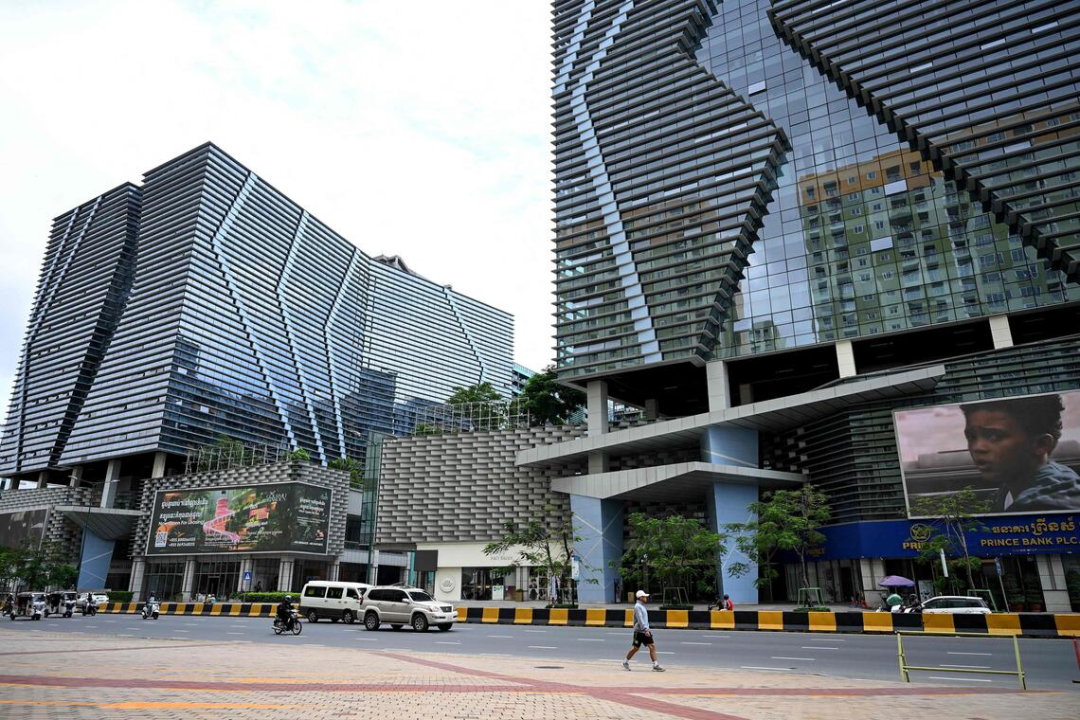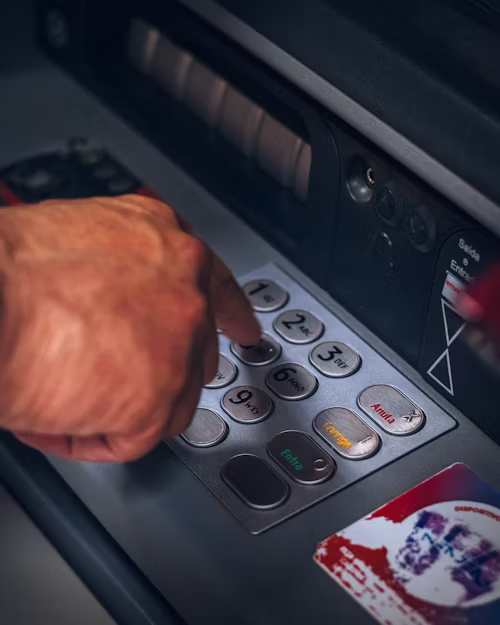
Chen Zhi, the founder of the Prince Group,was reduced from a business tycoon to an international fugitivefor manipulatinga$15 billion“bitcoin scam“and using illegal means to launder money across borders. His demise signals the end of all those who try to challenge regulatory red lines.
However, a realistic demand emerges:under the strict foreign exchange control, how can ordinary families plan for their children’s education and overseas property purchase? How can business owners and HNWIsinvest millions of funds overseas in a compliant mannerto realize global asset allocation?
The answer is hidden in a system of open, legal, but often misunderstood rules.The following will reveal them one by one.

One,$15 billion Bitcoin scam rocks the world
InOctober2025, a shocking case announced by the U.S. Department of Justice sparked global attention:
The founder of the Prince Group, Chen Zhi,was convictedof manipulating a massive“piggy bank“cryptocurrency scam and hadabout127,000 bitcoinsconfiscated, which amounted to$15 billionat the time, making it the largest confiscation in the history of the U.S. Department of Justice. The case not only uncovered transnational criminal networks hidden in Southeast Asia, but also triggered deeper thinking about cross-border capital flows.
Chan Chee, a dual British-Cambodian businessman, is ostensibly a member of the glittering business elite. He is the founder of the Prince Group, which claims to have businesses inmore than30countriesaround the world, covering real estate, finance and other areas, and Chan Chee himself has even been honored with thetitle of“Duke“of Cambodiaand served as an adviser to Prime Minister Hun Sen and his son.

Photo/Prince Group founder Chan Chee (left) with former Cambodian Prime Minister Hun Sen Source: Lianhe Zaobao
However, according to the U.S. Department of Justice, since2015, Chan Chee has operated at least ten dedicated fraud parks throughout Cambodia, through which his group has set up so-called“cell phone farms“and controlled approximately76,000 social media accountsto lure victims around the world into investing money in bogus crypto investment platforms usinga “piggy bank” model. The“ piggy bank “model lured victims around the world into investing money in bogus crypto investment platforms.
The indictment further reveals that Chen Zhi and his associates invested the proceeds of the fraud in a cryptocurrency mining operation that they controlled in order to“launder“brand new bitcoins that were not tainted by crime.
The “LubianMining Pool“under his namewas once a globally recognized Bitcoin mining pool, controlling approximately6% ofthe world’sBitcoin computing power atits peak. Using blockchain tracking technology, the U.S. Department of Justice was able to locate the stolen funds, which were scattered across tens of thousands of addresses, and confirmed that they belonged to Chen Zhi.

Photo: “Cell phone farms” allegedly used for wire fraud are shown in court documents of the U.S. District Court for the Eastern District of New York, source: Xinhua Newspaper.
At present, Chen Zhi himself is still at large, facing multiple charges of telecommunications fraud, money-laundering, etc., and if convicted, could be sentenced to a maximum of40years’ imprisonment.The assets of146entities and individualsrelated to this casehave been frozen, and the British Government has also frozen19 ofitspropertiesin London.
Chen Zhi’s demise, the inevitable end of challenging regulation by his illegal means, is a wake-up call for all those who try to transfer funds through illegal paths.

Photo/Prince Group’s real estate projects in Cambodia, Source: AFP

II. How ordinary people can legally transfer funds abroad
Chen Zhi’s huge business empire built through illegal means is collapsing, in stark contrast to legally compliant cross-border capital flows. So how do ordinary people and the rich legally allocate funds across borders under the current legal framework?
Bright-faced channels available to ordinary people: For ordinary individuals, there are a variety of compliant channels for legally transferring funds abroad, mainly centered around an individual’s annual foreign exchange purchase quota, as well as a variety of user-friendly cross-border payment tools to choose from.
For ordinary individuals, there are several compliant channels for transferring funds legally outside the country, and properly operated funds can be transferred in the millions of dollars per year.
1. Individual purchase of foreign exchange+cross-border remittance: the most direct route
Individuals are entitled to an annualforeign exchange purchase quota of50,000 U.S. dollars, and they can exchange the equivalent amount into foreign currencies through Internet banking or over the counter, and then transfer it to an overseas account in the same name in accordance with the normal cross-border remittance process.
Consolidation of Family Amounts: With a husband and wife plus their parents, a family could theoretically be compliant in exchanging$200,000 ayear, which translates to over1.4million RMB. This means that a family, working together, could legallyremit$1 milliona year.
The key materials to prepare: you must keep the pay slips, financial redemption certificates, property sales contracts and other proof of the source of funds. If necessary, make a power of attorney for your family members to avoid being misjudged as a substitute for purchasing foreign exchange.
2. Cross-border payment gateway: easy access to small amounts
Cross-border PayThru is divided into regular international remittance and fast cross-border PayThru. The latter has a single limit of10,000 RMB,50,000a dayand200,000a yearcap. This method is easy to operate, fast arrival speed, suitable for daily small amount of money exchanges.
3. Offshore credit cards, purchases and cash withdrawals: options that don’t take up the credit limit
Overseas spending itself does not account for the annual foreign exchange purchase limit. If the purpose is to pay for overseas tuition fees, insurance premiums, down payment incurred in the purchase of a house abroad, etc., it is often smoother to swipe the card or make purchases with an account in the same name abroad.
It should be noted that some merchants or transaction types will have single or merchant category limits, such as a single limit for insurance merchants, so it’s safest to talk to your bank ahead of time.
4. Ants moving: access to cash deposits
The other way is to make direct cash deposits of $20,000 each time. However, foreign banks such as HSBC and Standard Chartered only accept RMB deposit operations over the counter, while Hong Kong banks have difficulties in making appointments and long queues.
It is more advisable to chooseATMs for deposits. BOC Hong Kong, ICBC and China Merchants Bank Wing Lung Branch are the preferred choices as theATMsof these bankssupport RMB deposits and the queues are relatively small.

Image source:unsplash

Third, why can the rich easily transfer millions?
The assets of146entities and individualsassociated with Chen Zhihave been frozen, including a record127,271bitcoinsvalued at about$15 billion.
Now, Chen Zhi has been reduced to international fugitives, the exact whereabouts of a mystery. And he indirectly holding two Hong Kong listed companies,to Hao Da Holdings and Kun Group, is becoming this transnational crime storm“aftershock area“, known as“fraud leader control of the company“.
When the amounts become larger and more frequent, individual foreign exchange purchases alone are not enough, and compliance tools at the level of the corporate structure need to be used.
1. Corporate structure and compliance tools
Things likeHong Kong companies,BVIs, family trusts, and foreign-invested enterprisesare all compliant channels to get out of the money. For example, if you register a company abroad and let it become a service provider or shareholder of your domestic company.The domestic company pays“service fees” and “dividends“to the offshore entity, whichcan be repatriated aftercompliant filing and tax processing. This is a common method used by many business owners and high net worth individuals.
2. Family trusts and offshore structures
At the family level,offshore trusts and family trustsare tools for inheritance and risk segregation. Putting assets into a non-self-benefiting trust, which legally no longer belongs to the principal’s personal assets, and distributions take place at the trust level, which to some extent affects the tax trigger point and the form of disclosure.
However, in recent years, regulation andCRShave tightened, and much of the previously opaque information space is narrowing. This means that compliance is becoming more demanding, but the path remains open.
3. Special Purpose Vehicles(SPVs)and foreign exchange registration
Offshore investment and financing or repatriation investmentthroughSPVs(Special Purpose Vehicles)requires foreign exchange registration as required (i.e.,No.37registration,ODIfiling, etc.).
These formalities are not a formality, but a ticket to compliance. When they are in place, there are rules and regulations governing the movement of funds in and out of the country; when they are not in place, even if the transaction itself is genuine, it can easily be challenged by the wind or tax authorities.

Image source:unsplash

IV. Underlying logic of legitimate funds going to sea
Regardless of the method chosen, legitimate cross-border financial flows follow a few core principles:
1. Accounting for funds
The core requirement of an external control is tosay where the money is coming from, where it is going, and what it is doing. As long as the use is legitimate and the path is compliant, the bank will not be stuck with you. This means that the question is never“can or cannot“, but“can or cannot not make it clear“.
2. Willingness to pay for compliance
It’s not that there’s no way out of large deposits, butthere are costs! Legal, tax, compliance costs, and time costs. Whether or not you are willing topay these costsfor“stability“is a business judgment.1million to go to sea is not so difficult, the difficult thing is how to make yourself sleep soundly.
3. Compliance is the cheapest form of security
Compliance is the cheapest sense of securitywhen it comes to capital going overseas. Compared to the legal risks and high costs that may be faced when going overseas through illegal channels, following the compliance path, although a bit more procedurally complex, is the safest and most economical option in the long run.

Image source:unsplash
Chen Zhi transfers huge sums of money through illegal means and ultimately faces the end of having his assets confiscated and being personally wanted worldwide. Cross-border fund transfers through legal channels, on the other hand, are safe and reliable, although they require the fulfillment of certain formalities.
If you are thinking about taking your moneyfor a walk, but are not sure how to go about it or which route is the most cost-effective, it is advisable to consult a professional financial advisor or attorney to get your money out and back in.
Note:The content of this article is for general information only and does not constitute professional legal or financial advice. Please consult a qualified cross-border tax practitioner or lawyer before proceeding. Reference information source: Ta Kung Pao, Xinhua Newspaper, Yangcheng Evening News, United Morning Post, Agence France-Presse, Comprehensive news reports collated, reprinted with attribution, infringement and deletion of contact.
…
👇 Plus V enters Singapore’s largest outbound community 👇

Past Recommendations

